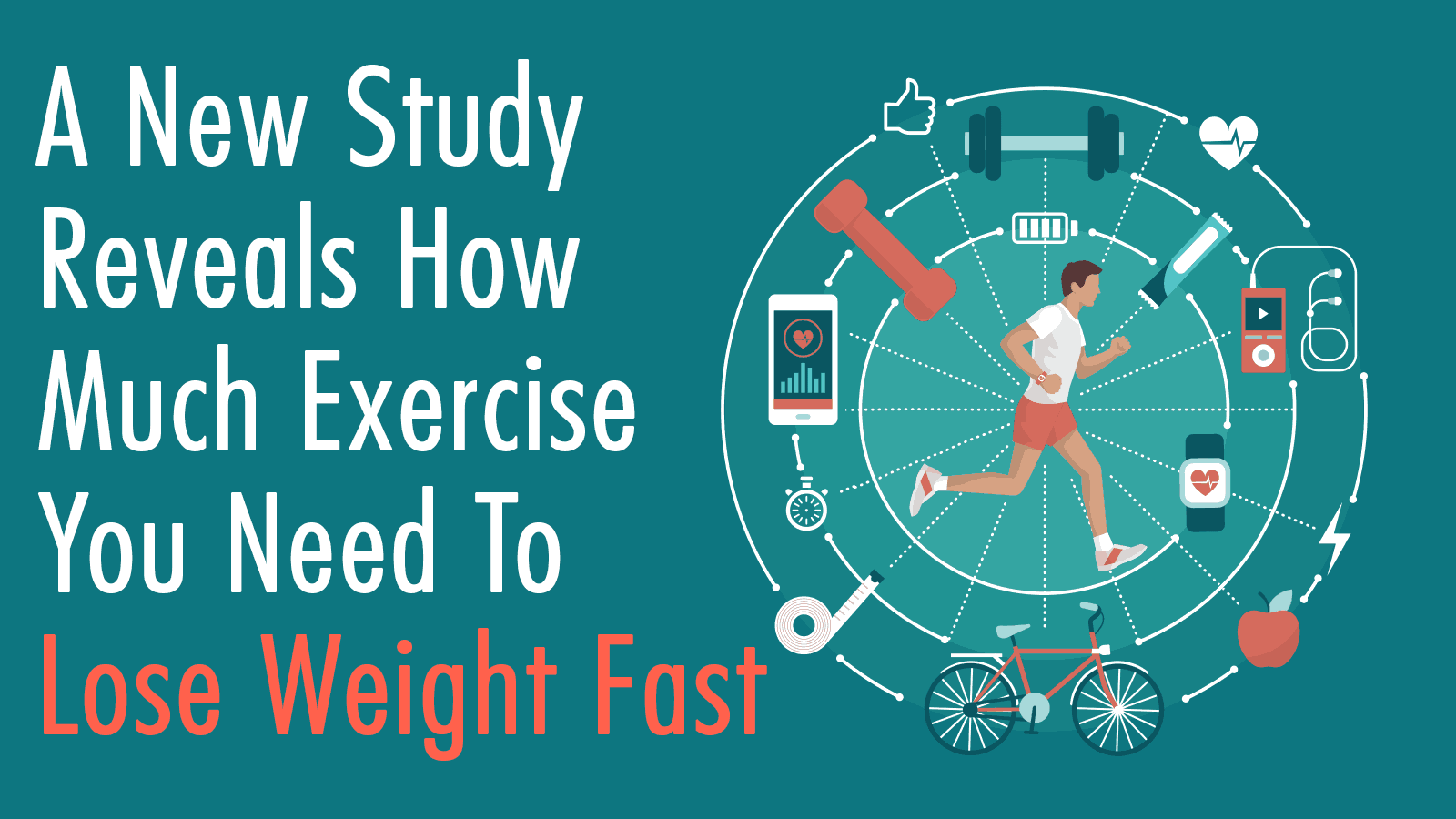Exercising is crucial for health, yet so few people do so regularly. The World Health Organization states that 1.4 billion people around the world are not physically active or exercising enough. A Centers for Disease Control and Prevention (CDC) report revealed that in America, only 23% of the population get sufficient exercise.
The CDC recommends 150 minutes of mild to moderate weekly exercise, with some simple strength exercises two times every week. That’s only two and a half hours spread out over seven days! Still, we often find it difficult to make time for this important activity.
Further studies have revealed how shirking this small amount of recommended exercise is terrible for the body. In fact, recent research has revealed that a lack of exercise can be even more harmful to you than cigarettes! Let’s find out how not exercising is worse for you than smoking.
Researchers Reveal How Not Exercising Is Worse For You Than Smoking
“To enjoy the glow of good health, you must exercise.” – Gene Tunney
1. Exercising helps you age gracefully
Most people want to age well. You likely wouldn’t want your golden years to be full of hospital trips and sickness. With regular exercise, these are benefits you can actually enjoy. According to MedlinePlus, here’s how exercising helps better aging.
· Reduced fall risk
Those who are older are more at risk of losing their balance and falling. The worst part is that the older you are, the more damaging these falls can be. Performing muscle training exercises with some mild balance and aerobic exercises are great for reducing the risk of this happening.
· Greater strength
If not exercised, bones and muscles tend to waste away as one ages. Bone density decreases with age in the average individual. Regular exercise can slow down this decrease, allowing you to enjoy strength and good muscle mass when you’re old and gray.
· Brain sharpness
When you exercise, your body releases special chemicals and proteins that help your brain stay healthy. Exercise can prevent brain and memory conditions. It can also help you to keep your thinking skills, cognitive function, and memory intact as you age.
· Less chance of erectile dysfunction
While certainly not the most important of the positive effects of exercise on aging, lowering ED risk is important to many seniors. Exercise can help boost arousal in women and reduce the chance of ED in men. For those who already have ED, they might see their problems decrease!
2. Exercise boosts positive thinking and helps mental disorders
According to WebMD, exercising causes the body to release chemical components known as endorphins. Endorphins are so powerful that they actually trigger a feeling similar to what you might get if you take morphine. You might feel “high”, light, and happy after exercising.
For this reason, exercise is also great for mental illnesses. Studies have shown that exercise can treat depression symptoms just as well as antidepressants, without all the side effects that may come with medication.
Exercising also relieves stress, so it can naturally alleviate tension that exacerbates anxiety disorders. Physical activity has been found to increase confidence and self-esteem, which can also help with disorders.
Given the fact that suicide is one of the leading causes of death in America, finding ways to treat or manage suicidal thoughts from mental illness is important. Although often not taken seriously, mental illnesses are no laughing matter. They deserve the same level of concern as physical illnesses.
Here are some neuro-atypical conditions that are helped by exercise:
- Depressive disorders
- Anxiety disorders
- PTSD
- C-PTSD
- Other trauma-related conditions
- ADHD
- Stress disorders
- Sleep disorders
Of course, the act of exercising can be difficult for those with mental health conditions. However, the extra effort to push yourself to undertake these activities can provide unparalleled benefits. You’ll feel proud of yourself for accomplishing something and doing good for your body – something you deserve!
It’s pretty obvious to see why failing to exercise can be worse than smoking. How else can you get a mood boost for free that does so much good to the body?
3. Not exercising makes your life significantly shorter
If you didn’t have enough reasons to start exercising already, here’s a big one. Neglecting to exercise regularly can actually cause a higher mortality rate.
This is according to a study that placed more than 122,000 patients on observation through rigorous treadmill tests from the years 1991 to 2014. Researchers noted their findings and linked them, later, to mortality rates.
According to results, cardiovascular fitness has an incredibly strong link to longevity and total-body health. Essentially, exercising can determine whether or not you enjoy a long life. It can also determine if you develop life-threatening illnesses. So it doesn’t matter how thin or fat you are. If you don’t exercise, you’re at risk.
This study revealed that those who showed themselves to be unfit on a treadmill had a higher chance of developing life-threatening diseases or passing away early. As a matter of fact, these individuals wound up in worse states than smokers, people with diabetes, or those with hypertension who were relatively fit on a treadmill.
The findings of this study were so conclusive that researchers behind it sent out an urge to the population. They state that a lack of physical fitness should be treated as a disease. It should be placed on par with things like smoking, heart conditions, and diabetes. As the researchers said, physical unfitness is treatable with a simple prescription: exercise.
4. Exercising prevents disease
Tying into our previous point about longevity, exercising regularly can actually prevent disease. Here is what it can do for different conditions.
· Heart disease
Exercise helps the heart keep strong and healthy. This makes your circulation better. Good circulation can then aid in cholesterol level, blood pressure, and triglyceride balance. It can also prevent heart attacks and artery disease.
· Diabetes and insulin resistance
Exercise can help regulate the levels of glucose, or blood sugar, in the body. This helps your insulin to function correctly. Incorrect insulin function puts you at risk for type 2 diabetes and even metabolic syndrome. If you currently have a condition that causes insulin resistance, such as PCOS, exercise can prevent it from worsening and make for positive change.
· Obesity
Similar to the prior point, exercise helps you maintain your weight or lose weight if you so desire. It burns calories, keeps your metabolism running, and helps you work off fat. Different kinds of exercise promote different benefits, so look for ones that will help you shed pounds if you seek this positive effect.
· Addiction
Yes, we’re talking about how not exercising is worse than smoking. But if you’re a smoker who wants to quit and you exercise, you’ll actually be doing yourself a favor. Exercise has been shown to ease withdrawal symptoms and aid in management of craving.
· Cancer
There have been studies that suggest exercise helps prevent the development of a lot of different kinds of cancers. This includes lung cancer, breast cancer, colon cancer, and uterine cancer.
The best part? You don’t have to do much exercise for these benefits! Just putting in two days of physical activity every week can work wonders, according to a study in the Journal of Psychology.
5. Exercising is something you can control
Exercise is versatile. You can do tons of different kinds of physical activities. There’s no shortage to choose from, so unless you have a disability that prevents it, there are few excuses not to perform physical activity every day.
Able-bodied? Take a walk, go for a swim, visit the gym, or dance your heart out. In a wheelchair? Wheel yourself around a mall or do some form of weight-lifting for your upper body or arms. Have pain issues? Opt for relaxed, slow, low-intensity physical activity in small amounts at a time. Here are some examples of ways you can exercise:
- Walking
- Jogging
- Running
- Dancing
- Biking
- Swimming
- Weight training
- Climbing stairs and/or hills
- Playing a game (football, basketball, tennis, hockey, etc.)
- Doing housework
- Doing yardwork
- Yoga
- Martial arts
At the end of the day, if you are able to physically perform exercise, there is always an option for you. It’s something you’re able to choose and customize for your personal needs and free time. Essentially, this is certainly much easier than stopping smoking or managing diabetes.
Taking control of your daily life and creating a healthy exercise routine can provide you with a sense of purpose. It can show you that you are capable of making a good change in your life. This can do wonders for your self-esteem, positive thinking, and overall bodily health!
Final Thoughts On How Exercising Is Worse For You Than Smoking
Brushing off the need to exercise isn’t just bad for your fitness. It can lead to a shorter lifespan, higher risk for disease, and worsened mood. You don’t need to do all that much of it to make a difference. This makes the universal lack of physical activity even more disheartening.
Even if you’re not able to get in as much exercise as you like, make an effort to incorporate small amounts of exercise into your daily or weekly plan. You’d be surprised the benefits you can get out of this small change. With so many benefits backed by research, you know it’ll be good for you in the long run!
https://www.youtube.com/watch?v=yG-G9_LOkLA














 Community
Community

